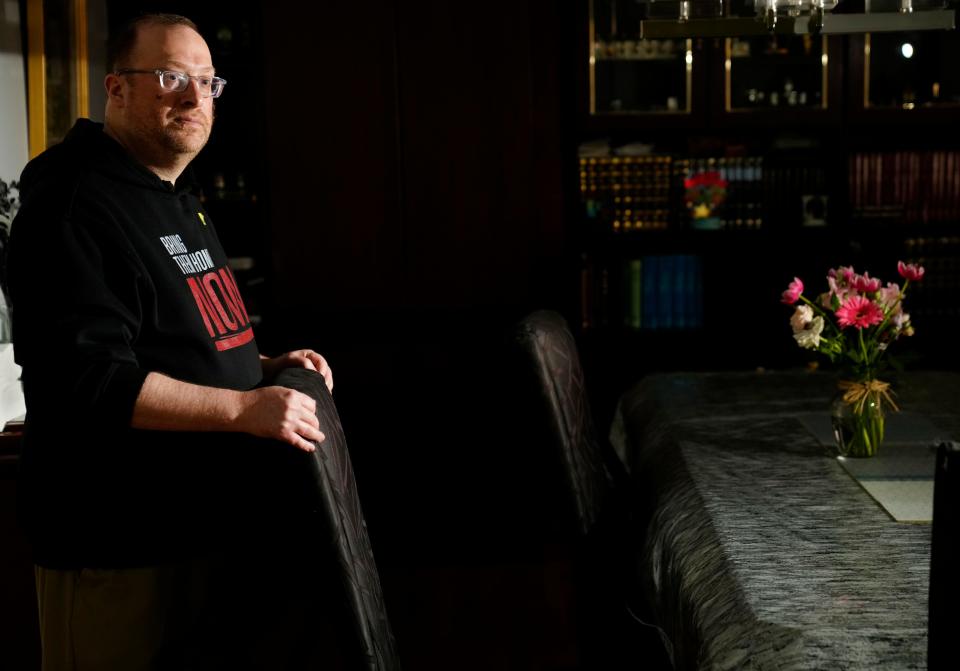This Passover, it's essential to remove our shoes. This is why
Passover begins at sundown on Monday and celebrates the exodus of ancient Jews from Egypt, a transition from slavery to freedom. Celebrated annually, the holiday starts with two Seder nights recounting the story of the miracles of the exodus and runs through April 30. The story of the exodus begins with an interesting encounter between G-d and Moses at a burning bush where G-d opens His first ever direct conversation with man by saying “Remove your shoes from your feet for the ground you stand upon is holy" (Exodus 3:5). Out of all of the things G-d could have said, why did He choose to start with the removal of footwear?
This act of removing shoes carries immense symbolism. It signifies shedding the ordinary, stepping into sacred space, and preparing for a divine encounter. By instructing Moses to remove his shoes, God initiates a profound relationship with Moses and sets in motion the liberation of the Israelites from slavery.
But why this emphasis on footwear? Shoes, in their essence, represent human ingenuity and adaptation. They elevate us from the earth, providing comfort and protection. However, in the presence of the divine, the act of removing one's shoes signifies vulnerability and humility. It is a stripping away of layers, both physical and metaphorical, to connect more authentically with the divine.

This ritual of shoe removal reverberates throughout Jewish tradition. It is mirrored in the practices of priests serving in the temple and observed on the holiest of days, Yom Kippur and on solemn occasions like the Mourning period after the passing of a close relative and Tisha B'Av, the annual fast day where Jews commemorate the destruction of the Holy Temples. These moments underscore the acknowledgment of human frailty and the quest for spiritual closeness.
Passover, at its core, encapsulates the journey from enslavement to redemption. The Israelites, oppressed in Egypt, needed to recognize their plight and seek divine intervention. Their cry for liberation marked the beginning of their transformation — a testament to the power of acknowledging vulnerability as a precursor to growth and renewal.
In our modern lives, the Passover narrative holds timeless lessons. It challenges us to confront our limitations honestly and embrace humility as a pathway to personal evolution. By shedding the metaphorical shoes of pride and ego, we open ourselves to the prospect of change and redemption.
As we commemorate Passover annually, retelling the story becomes a call to introspection. We are encouraged to examine our own lives, identify areas of constraint and aspire toward newfound freedom. Through humility, we pave the way for spiritual liberation, mirroring the transformative journey of the ancient Israelites.
The symbolic resonance of footwear extends beyond religious narratives into everyday life and cultural expressions. The saying "filling someone else's shoes" conveys the weight of assuming a respected role or legacy. It underscores the notion of stepping into unfamiliar territory, embodying the qualities and responsibilities of those who came before.
Literature, too, abounds with shoe-related symbolism. From fairy tales like Cinderella, where a lost slipper signifies transformation and destiny, to classic works like "To Kill a Mockingbird," where shoes symbolize empathy and understanding ("You never really understand a person until you consider things from his point of view... until you climb into his skin and walk around in it").

In historical speeches, footwear metaphors evoke empathy and solidarity. The famous phrase "walk a mile in someone's shoes" underscores the importance of empathy and understanding. It speaks to the notion that true comprehension requires immersion and perspective-taking — a sentiment echoed in religious teachings about removing shoes to approach the divine.
The symbolic significance of footwear runs deep in human consciousness, intertwining with narratives of liberation, empathy, and personal growth. From the ancient rituals of Passover to modern-day idioms and literary motifs, shoes serve as potent symbols of transformation and connection. Through the act of shedding our metaphorical shoes — our defenses and pretensions — we invite humility and embark on a journey toward redemption, echoing the timeless lessons of Passover.
Rabbi Benny Berlin is the rabbi of BACH Jewish Center located in Long Beach, New York. For more information, visit bachlongbeach.com.
This article originally appeared on NorthJersey.com: Passover shoe removal tradition is essential
